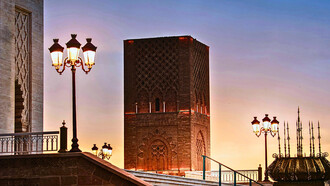If there were no ancient Rome, would there be any interest in visiting Rome today? This question often crosses my mind. People flock to Rome to uncover the stories of the past, to explore the remains and relics of the Colosseum and the Roman Forum. The city itself is like an enormous open-air museum, showcasing the grandeur of the Roman Empire at every turn.
A glimpse into gladiatorial life at the Colosseum
Stepping into the Colosseum is like stepping into the sandals of ancient gladiators. You can almost hear the roar of the crowd, feel the tension of impending battles against wild beasts or fellow warriors. The sense of being a warrior is palpable, especially if you're influenced by the dramatic portrayals in Hollywood films. Inside, one can't help but ponder what the Romans were thinking when they built such a vast arena. Why create a space so grand, only to witness death and combat? What cultural values made them see these spectacles as a sign of superiority?
The Colosseum, a UNESCO World Heritage site and one of the New Seven Wonders of the World, attracts millions of tourists annually. Visitors from around the globe come armed with cameras, eager to capture the ancient structure. It often seems that only in Rome do people exhibit such a profound interest in the past, almost as if they're seeking to escape the present or transport themselves back in time. The Colosseum stands as a powerful symbol of the might and sophistication of ancient Rome. Its architecture is unparalleled, reinforcing Rome's title as the "Eternal City." The modern generation should be grateful to their ancestors for building such an iconic monument, as it continues to provide livelihoods through tourism. People travel great distances to marvel at these ancient relics.
Yet, the fascination with the Colosseum also underscores a deeper yearning for connection with human history. It's not just the grandeur of the structure that captivates visitors, but the stories embedded within its walls. Each crack and weathered stone tells a tale of triumph and tragedy, of a civilisation that grappled with the same fundamental questions about power, glory, and mortality that we do today. The Colosseum acts as a mirror reflecting the complexities of human nature, making it a site of profound reflection and understanding.
The Roman Forum, the heart of the ancient city
The Roman Forum is another fascinating site in Rome. It has inspired countless artists, writers, and historians, symbolising the grandeur and complexity of Roman civilisation. On my way to Rome, I observed a bus driver and a passenger engaged in a lively conversation in Italian for almost 30 minutes. It struck me that Rome is a city filled with vibrant discussions, a trait inherited from its ancestors who valued public debate and open dialogue.
At the Roman Forum, the birthplace of ideas about democracy and freedom of thought, you can feel the intellectual vigour that once thrived there. In contrast, today's world often prefers silence, with conversations replaced by screen interactions. While modern technology has made us more informed, it has also made us less engaged in face-to-face dialogue. The Romans, without the internet, were incredibly advanced, fostering ideas and innovations that have endured through the ages.
The Roman Forum teaches us the value of debate and open-mindedness, principles that seem diminished in today's culture of digital communication. Reflecting on my time in Rome, I was struck by the achievements of this ancient civilisation. They built structures that have withstood earthquakes and time, showcasing an understanding of engineering and foresight that continues to impress.
In a world increasingly dominated by transient digital interactions, the Roman Forum stands as a testament to the enduring importance of direct human connection and discourse. Its ruins remind us that the foundational ideas of governance and civic engagement originated from a culture that cherished public debate and intellectual exchange. As we wander through these ancient streets, we are not only exploring historical artefacts but also reconnecting with the principles that have shaped democratic societies throughout history.
Rome’s ancient ruins, from the Colosseum to the Roman Forum, are not just tourist attractions but enduring symbols of a civilisation that profoundly shaped our world. As we explore these remnants, we gain insight into the lives, values, and innovations of the Romans, making Rome a timeless city worth visiting and studying.














